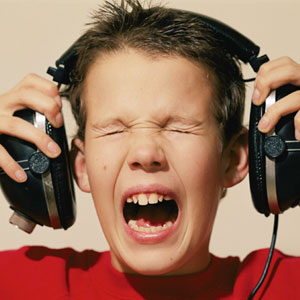 Many types of businesses expose employees to damaging levels of noise pollution while they are at work. Surprisingly, many of the noises that cause hearing loss are not the loud uncomfortable ones that most people think of. Instead, they fall into the category of mid-level decibels and continue for long periods of time. As a result, hearing loss often occurs gradually, without workers even realizing it until it is too late. However, there are many precautions that employers can take to protect employees and reduce the level of hearing damage that occurs in the workplace.
Many types of businesses expose employees to damaging levels of noise pollution while they are at work. Surprisingly, many of the noises that cause hearing loss are not the loud uncomfortable ones that most people think of. Instead, they fall into the category of mid-level decibels and continue for long periods of time. As a result, hearing loss often occurs gradually, without workers even realizing it until it is too late. However, there are many precautions that employers can take to protect employees and reduce the level of hearing damage that occurs in the workplace.
Common Sources of Noise Pollution
Some noises, such as jackhammers and jet engines, are obviously loud enough to cause hearing damage. However, other sounds such as heavy trucks and a crowded bar or night club can also reach damaging levels. In general, a business should take action to protect their employee’s hearing if any of the following circumstances apply to their business.
- Noises are loud enough to be disruptive, such as busy street traffic or a vacuum cleaner, and last for most of the workday.
- Employees must elevate their voices in order to heard, even when standing close to each other.
- Employees use power tools or machinery for more than 30 minutes a day
- Your business operates in one of the following industries: construction, demolition, road repair, woodworking, plastics processing, engineering, manufacturing, fabrication or foundries.
Preventing Hearing Damage
Businesses that operate in noisy environments can protect their employees through training, providing protective gear and changing workplace equipment. Some ways to reduce hearing loss in the workplace include the following:
- Installing quieter equipment or switching to a process that doesn’t require the equipment
- Installing screens, barriers, enclosures and absorbent materials in the workplace to act as a sound dampener and reduce the level of noise that workers are exposed to
- Implementing policies that limit the amount of time that workers spend in noisy areas or using noisy equipment
- Issuing proper hearing protection to employees who work in noise-prone areas and training them on the proper usage





